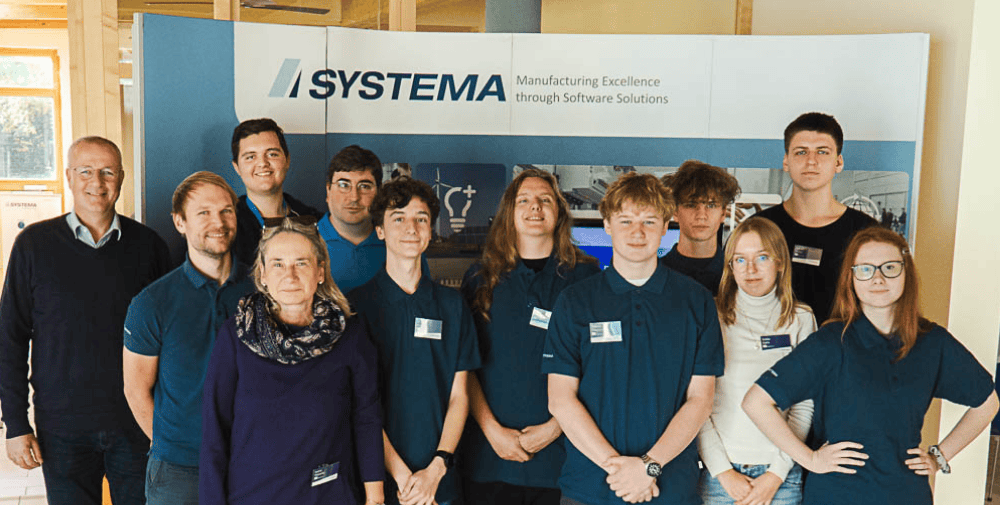
Is recruiting international specialists therefore a solution? The need is obvious. According to our study, 60% of respondents clearly feel the lack of experts in their companies. Worryingly, 21% have already had to turn down orders because they simply didn’t have the right staff.
A key strategy for Germany?
The desire for international specialists is huge and, alongside the use of AI (more information on this topic here), is becoming a critical success strategy for Germany’s future. The figures from the Federal Statistical Office confirm this development. The proportion of international skilled workers has been increasing for several years.
Sectors that are looking for highly qualified skilled workers with an academic degree are also benefiting. In so-called shortage occupations (e.g. engineers or IT specialists), in which there is a high number of unfilled vacancies in Germany, simplified requirements apply for obtaining a Blue Card. It is a work permit that facilitates access to the German labor market for highly qualified specialists from non-EU countries. In order to obtain the Blue Card, applicants must meet certain requirements, such as a university degree and an expected minimum income. The positive side: Blue Card skilled workers stay longer. According to Statista, 83% of those who received this residence permit between 2012 and 2017 continued to live in Germany after five years.
In total, over a third of international skilled workers in Germany are highly qualified (Blue Card holders + skilled workers with an academic background). This appears to be a high figure. However, it is put into perspective by the total number: In 2022, 351,410 people were registered with a temporary residence permit for the purpose of gainful employment. Broken down to academics, that is around 126,000 people. However, these are divided into different professional groups, such as medical professionals, scientists or architects. Unfortunately, exact figures for the proportion of engineers and IT specialists are not available.
According to a new study by the digital association Bitkom, however, there are currently around 149,000 unfilled positions for IT experts alone. According to the Association of German Engineers (VDI), there are around 165,000 vacancies for engineers. This means that the needs of the economy are currently only being met to a very limited extent by international specialists. There is therefore still a great deal of potential for companies.
Hands tied? What companies can do themselves
The truth is: In hardly any other field of action are companies as dependent on the political framework conditions as they are when it comes to acquiring international skilled workers. Companies themselves have little influence on foreign policy exchanges or regulations on the integration of foreign experts. Visa issuance and recognition procedures are also regulated by the authorities.
Apart from the political framework conditions, however, companies have a number of options for finding and retaining international experts in the long term:
- Targeted approach abroad: Companies can specifically search for skilled workers abroad and actively approach them, for example by participating in international job fairs or placing job advertisements in foreign media.
- Support with the recognition of foreign qualifications: Companies help their international employees by providing information about the recognition process and the steps required to have foreign qualifications recognized. They can also support them financially and, for example, cover the fees for the recognition procedure. It is also helpful to give employees appropriate time and flexibility to prepare for the recognition process.
- Providing language courses and cultural integration: Providing language courses and support with cultural integration can help foreign professionals feel comfortable and productive in Germany. This can include integration into associations or other voluntary activities.
- Perspective and appreciation: It makes sense to integrate the topic of further training as early as the recruitment process. This creates clarity on both sides about the knowledge and skills required in the new job. Companies demonstrate their appreciation of potential new employees right from the start – and create space for employees to adjust to the new working environment and culture.
- Employee-oriented onboarding: New colleagues should be supported at every stage of this process – from signing the contract to the end of the probationary period – and continuously provided with the necessary information. This includes measures such as mentoring or buddy projects. In these, more experienced colleagues provide support with social integration, knowledge exchange and the promotion of intercultural understanding. Joint team activities also help international employees to feel more comfortable. Continuous feedback between new employees and their managers makes it possible to reflect on the start of the job and counteract potential problems at an early stage.
- Creating international working environments: Of course, this is not possible everywhere, but creating international working environments – for example by establishing intercultural training programs – can make it easier to integrate foreign specialists into the company.
- Patience: We at SALT AND PEPPER have also already had our share of experiences with recruiting international specialists. The learning: it never goes as quickly as we would have liked – but perseverance pays off. For one of our current employees, it took over two months in the application process before she had a work permit. Because we really wanted to hire her, we showed patience and waited for her.
– – – – – –
Further links
👉 https://salt-and-pepper.eu
Graphics: pixabay




